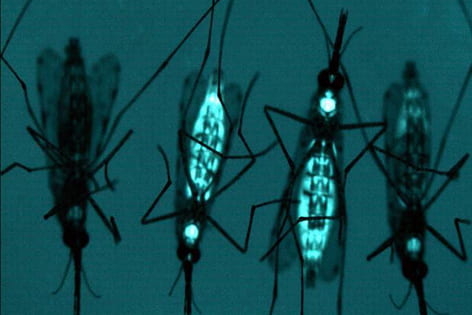Declaring war on malaria
Anthony James knows mosquitoes, and he knows even more about the disease and illness they spread.

Anthony James knows mosquitoes, and he knows even more about the disease and illness they spread.
Malaria sickens nearly a quarter of a billion people each year, killing nearly 2 million in some of the poorest areas on Earth. Despite the best efforts of biomedical researchers and public health officials, malaria prevention and treatment strategies make only a small impact.
“The challenge of malaria – and with the mosquitoes that spread it – has been so large that it’s been nearly impossible to put our arms around it,” says James, a UCI vector biologist who is world-renowned for his efforts to create genetically modified mosquitoes incapable of transmitting disease-causing pathogens. “It remains one of the biggest threats to human health.”
This decade has seen renewed vigor aimed at combating malaria, fueled by multimillion-dollar efforts funded by the Bill & Melinda Gates Foundation. The goal is to develop a new vaccine, more effective drugs and improved methods of mosquito control to eventually eradicate the deadly disease.
James has long been involved in the battle to fight vector-borne diseases like malaria and dengue fever. He’s involved with a Gates Foundation-funded program to develop genetic methods of controlling dengue transmission by eliminating the mosquitoes that transmit the virus and replacing them with ones that don’t. It’s an approach that he also explores with his malaria-related research.
On Nov. 21, James – who in 2006 was elected to the prestigious National Academy of Sciences – will play a key role in “Malaria in the 21st Century,” a daylong symposium that brings together world-class scientists – including biologist and public health professor Guiyan Yan of UCI – and key members of the global health community.
In addition to his talk on genetic-modification research, James will lead a panel discussion with scientists and public health officials from around the world to shed light on future prospects for containing malaria.
“People who attend this conference will walk away with a better understanding of the international effort against malaria and where the successes will be,” James says. “They will hear a lot of new thinking and approaches on how to fight malaria.”
